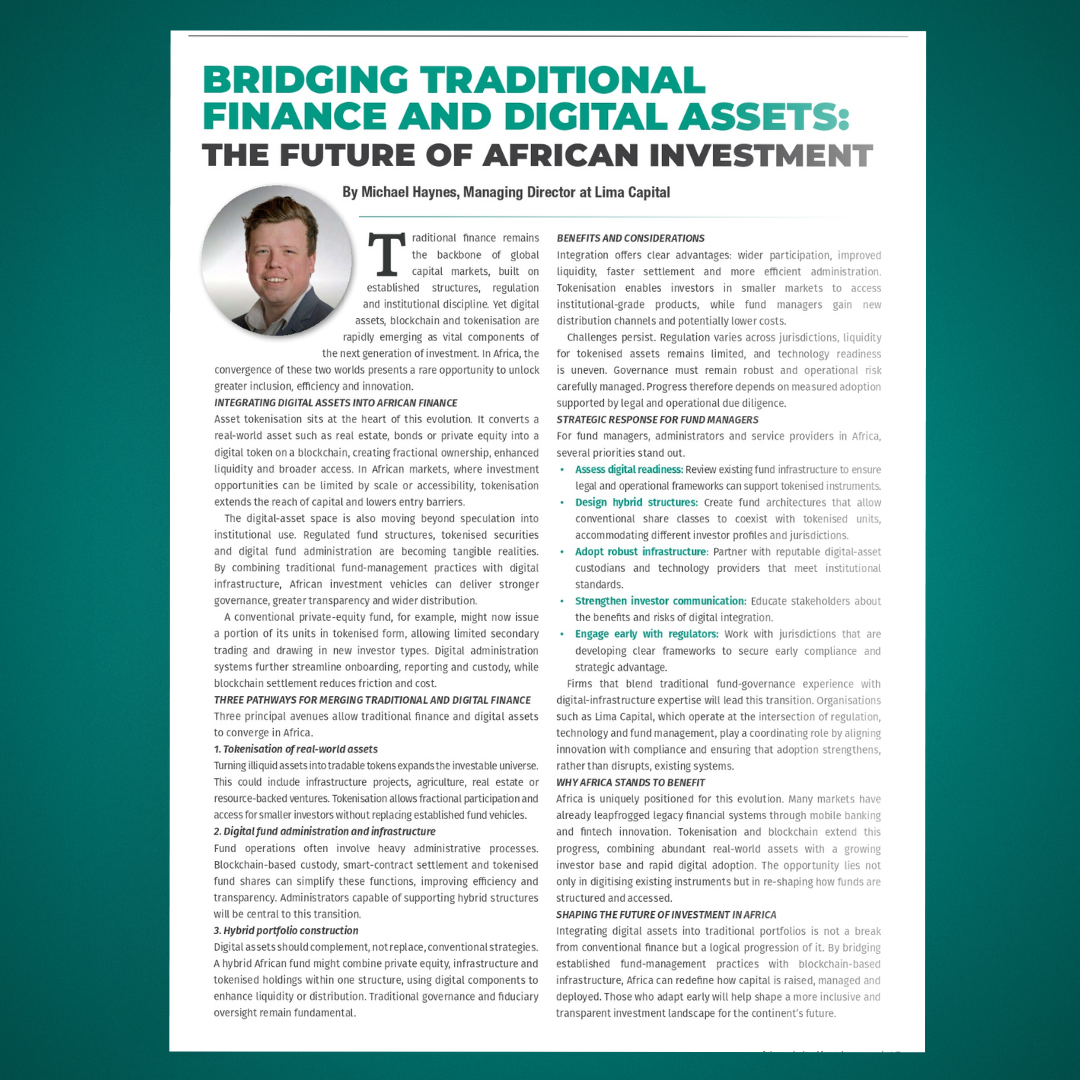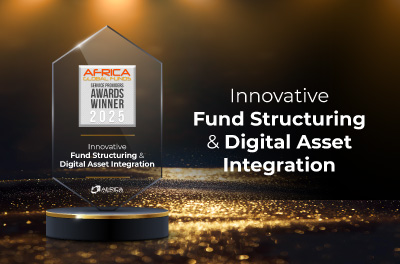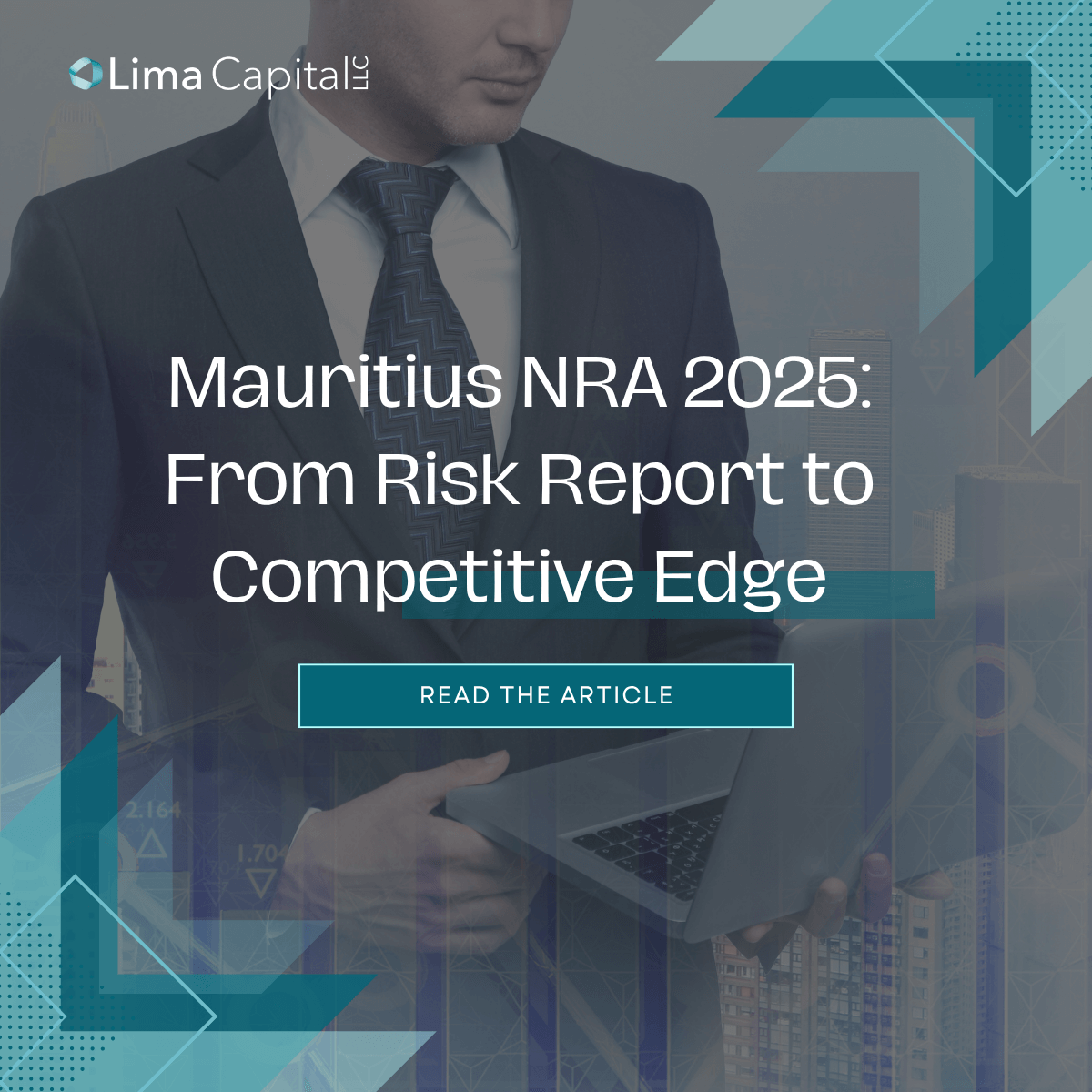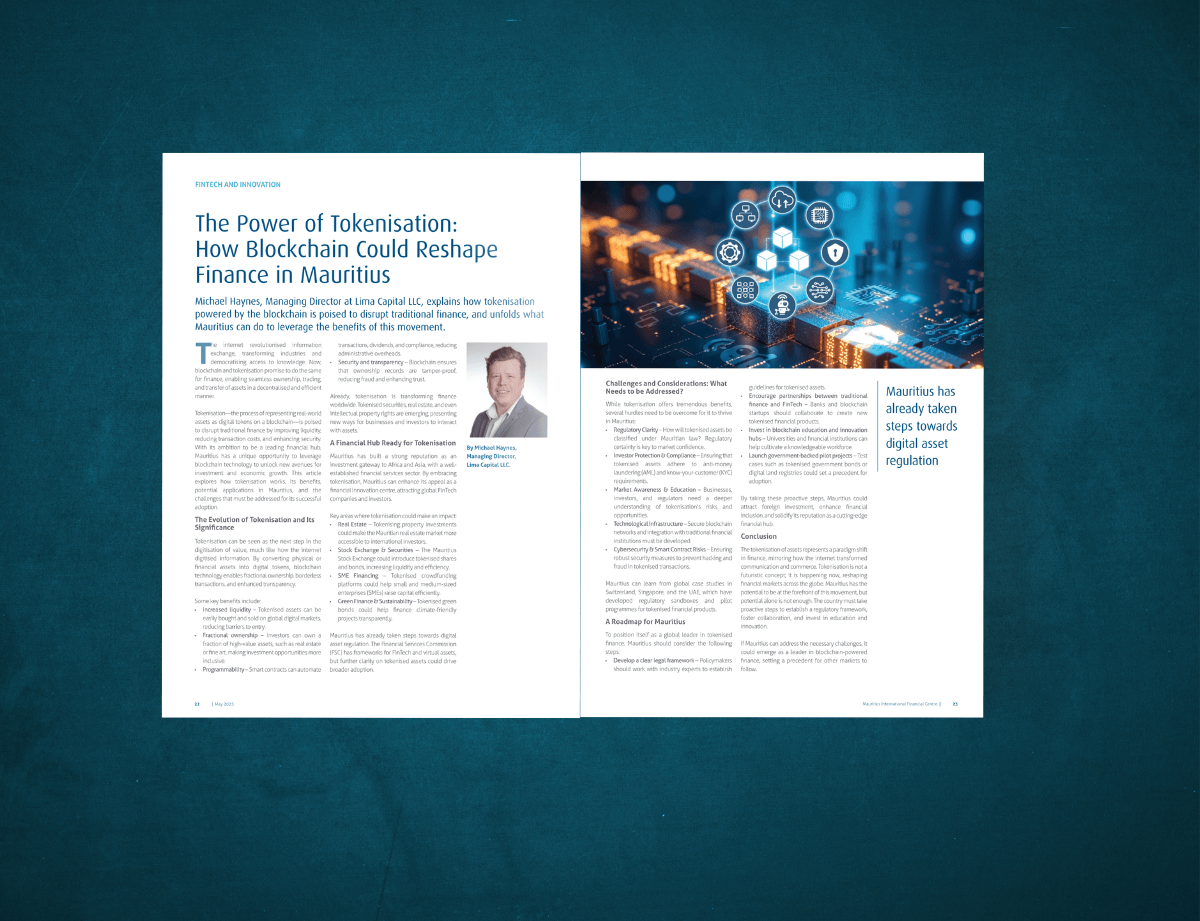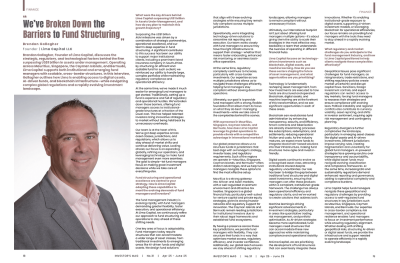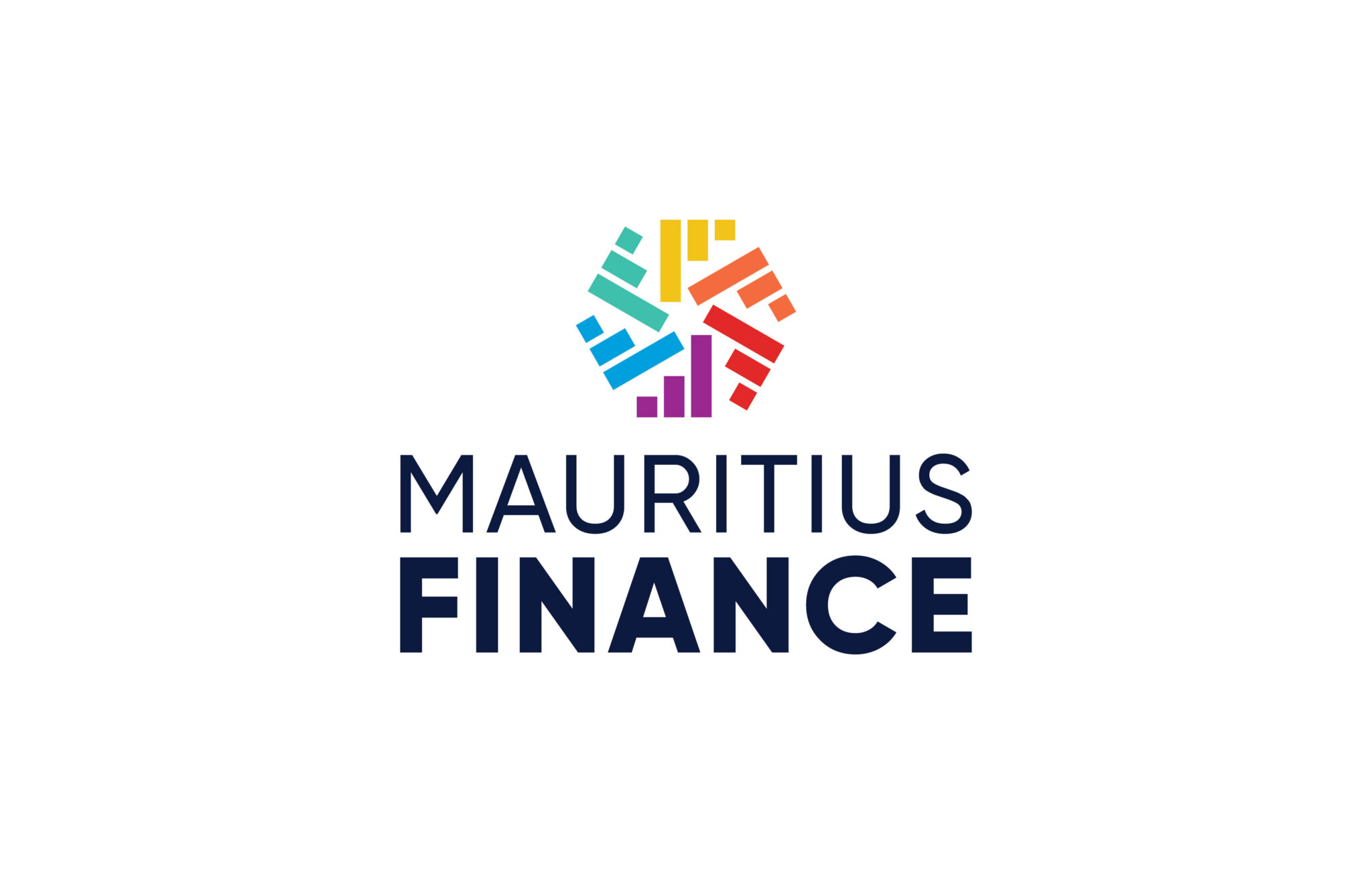As the global financial landscape continues to evolve, fund management finds itself at the crossroads of innovation, regulation, and opportunity. Emerging technologies, shifting investor expectations, and the ongoing redefinition of asset classes are reshaping how funds are structured, managed, and delivered. For fund managers, the challenge is clear: adapt to these changes or risk being left behind in a highly competitive market.
In this article, we explore the key trends that will define fund management in 2025, from the increasing importance of operational efficiency and global regulatory compliance to the integration of cutting-edge technologies like artificial intelligence. Whether you’re an emerging fund manager looking to scale or an established player aiming to future-proof your operations, understanding these trends will be crucial for success.
AI and Big Data: Automating Processes and Delivering Smarter Investment Insights
As we approach 2025, artificial intelligence (AI) and big data are poised to revolutionise the fund management landscape. The capability to analyse vast amounts of data in real time allows fund managers to make informed decisions more swiftly than ever before. By leveraging advanced algorithms, fund managers can identify patterns and trends that were previously undetectable, enabling them to predict market movements and investment opportunities with greater accuracy. This enhanced decision-making process not only improves performance but also instils confidence among investors, fostering stronger relationships based on transparency and reliability.
Moreover, automation powered by AI is streamlining operational processes within fund management firms. Tasks that once required significant human resources, such as data entry, reconciliation, and compliance checks, can now be performed by intelligent systems. This shift not only reduces operational costs but also minimises the risk of human error, leading to greater efficiency and accuracy. By reallocating human talent to more strategic roles, firms can foster innovation and creativity while ensuring core operations run smoothly.
Blockchain and Digital Assets: Transforming the Future of Fund Management
Blockchain technology is rapidly gaining traction in the fund management sector, heralding a new era of transparency and efficiency. By providing a decentralised ledger that records transactions securely and immutably, blockchain enhances trust among stakeholders. Fund managers can utilise this technology to streamline their operations, enabling faster settlement times and reducing the need for intermediaries. This transformation not only cuts costs but also minimises the potential for fraud, making transactions more secure.
Digital assets are carving out a permanent role in the fund management landscape, shaping the future of investment strategies. Beyond their initial allure as speculative investments, these assets are now being recognised for their ability to diversify portfolios and hedge against traditional market risks. Institutional interest, bolstered by developments such as Bitcoin ETFs, is driving the evolution of investment strategies and reshaping how managers approach asset allocation. However, embracing these opportunities demands a sophisticated grasp of regulatory compliance, secure custody solutions, and volatility management—challenges that fund managers must navigate to thrive in this rapidly evolving space.
Alternative Investments: Navigating Complexity in the Pursuit of Resilience
As traditional asset classes grapple with ongoing market volatility, alternative investments are emerging as indispensable components of resilient portfolios. By 2025, private equity, venture capital, and real estate are expected to solidify their roles as critical drivers of returns, catering to investors seeking both growth and diversification. However, this shift requires fund managers to move beyond conventional strategies and adopt a more nuanced approach—one that involves specialised expertise, deeper due diligence, and active portfolio management—to navigate these complex landscapes.
Private Equity: Scaling Amidst Caution
Despite navigating a challenging 2022-2023 marked by steep interest rate hikes, private equity continues to attract institutional capital, with Preqin projecting the global market to reach $12.0 trillion by the end of 2029. However, the era of easy gains is over. Investors are now prioritising businesses with robust fundamentals and scalable growth models, leading to a more cautious valuation environment where rigorous due diligence and operational excellence are paramount. Fund managers who can identify companies with strong cash flows and sustainable growth potential—even in a climate of potentially lower returns and increased LP influence—will be best positioned to deliver value in this evolving landscape.
Venture Capital: The Innovation Vanguard
While the venture capital landscape faces headwinds in the short term, with exits significantly down in 2024 compared to 2023, the long-term outlook remains positive. Investors are exercising caution, leading to a slowdown in fundraising, but this is likely a temporary response to the challenging exit environment and higher interest rates. As the Fed begins to cut rates, and with investor sentiment remaining positive for long-term VC allocations, we can expect a gradual recovery.
However, there is pressure on fund managers to deliver returns that meet the heightened expectations that have accompanied the rapid growth of VC assets under management, which now exceed $3 trillion. This may lead to a greater emphasis on late-stage investments and startups with proven business models and clear paths to profitability. The rise of strategic co-investments and syndications reflects a more collaborative approach to navigating this evolving landscape. For example, in late 2024, Anthropic, an AI safety and research company, secured a $4 billion investment from Amazon, adding to its previous investments and making Amazon its largest investor, though still a minority stakeholder. This builds on earlier co-investments from Google, Salesforce Ventures, and Zoom Ventures, alongside firms like Spark Capital. This trend allows firms to pool resources, share risks, and leverage diverse expertise, particularly in capital-intensive and rapidly evolving sectors like AI.
Real Estate: Resilience Through Adaptation
Traditionally viewed as a safe haven, the real estate sector is undergoing rapid evolution driven by demographic shifts and technological innovation. As institutional investors diversify their portfolios, real estate assets with adaptive reuse potential—such as repurposing office spaces into residential or mixed-use developments—are gaining traction. Fund managers must stay ahead of these trends by leveraging data-driven insights and aligning their strategies with long-term societal and economic changes.
Emerging Markets: High-Growth Regions Driving the Next Wave of Investment Opportunities
Emerging markets are poised to become powerhouses of global growth, with regions like Southeast Asia, Africa, and Latin America leading the charge. By 2025, these markets are expected to contribute significantly to global GDP growth, driven by urbanisation, a burgeoning middle class, and rapid technological adoption. For fund managers seeking diversification and untapped potential, emerging markets represent a compelling opportunity—but one that demands precision and adaptability.
Southeast Asia: A Digital Revolution
Southeast Asia’s digital economy is projected to reach $363 billion by 2025, fuelled by rising internet penetration and a young, tech-savvy population. Markets like Indonesia, Vietnam, and the Philippines are experiencing exponential growth in sectors such as fintech, e-commerce, and digital payments. Fund managers who position themselves in these sectors can capitalise on the region’s accelerating shift toward online consumption. For example, Indonesia’s GoTo Group and Vietnam’s MoMo have already demonstrated the potential of tech-driven solutions tailored to local needs.
Africa: Unlocking Demographic Dividends
Africa’s population is expected to reach approximately 2.5 billion by 2050, with a median age of 24.4 years, creating a massive consumer base and workforce. Countries like Nigeria, Kenya, and South Africa are emerging as investment hubs, particularly in renewable energy, agritech, and mobile banking. M-Pesa, a mobile payment system originating in Kenya, has become a global case study in innovation, highlighting the region’s ability to leapfrog traditional technologies. Fund managers who invest in scalable infrastructure and tech-enabled solutions stand to gain from Africa’s rapid development trajectory.
Latin America: Sustainability and Startups
Latin America is becoming a hotspot for sustainable investments and tech startups. Brazil and Mexico are driving growth in green energy, while Colombia and Chile are gaining recognition for startup ecosystems focused on fintech and logistics. The region’s venture capital activity reached $15.9 billion in the first half of 2022, exceeding full-year investment totals from prior to the pandemic. As sustainability becomes a global imperative, fund managers have an opportunity to align their portfolios with renewable energy projects and ESG-driven initiatives.
By targeting high-growth sectors and adapting to regional dynamics, fund managers can capture the immense potential of emerging markets. As these regions reshape the global investment landscape, a well-crafted strategy will be the key to staying ahead of the curve.
Talent and Adaptability: The Human Advantage in an AI-Driven World
The rise of AI agents is transforming the fund management industry, automating tasks and providing sophisticated data analysis. But this doesn’t diminish the importance of human talent; it redefines it. By 2025, fund managers will need to attract and retain individuals who can leverage AI tools effectively, interpret complex data, and identify opportunities that algorithms might miss. This requires a shift in skills development, focusing on areas like critical thinking, data literacy, and ethical decision-making in an AI-driven context. Moreover, adaptability will be crucial. Fund managers must foster a culture of continuous learning and innovation, empowering their teams to experiment with new technologies and strategies. Those who can successfully integrate human expertise with the power of AI will gain a significant competitive advantage.
Operational Excellence: Simplifying Fund Structuring and Management to Drive Growth
By 2025, operational excellence will be a key differentiator for successful fund managers. Embracing automation and agile practices will be crucial to navigate the complexities of the future. This means streamlining tasks such as report generation, compliance checks, and data reconciliation. Cloud-based solutions will also be essential, offering enhanced security, scalability, and cost-efficiency.
For fund managers seeking a comprehensive and efficient solution, partnering with us can provide access to cutting-edge technology and operational expertise. By prioritising these advancements, fund managers will not only improve operational efficiency but also free up valuable time and resources to focus on strategic initiatives, client relationships, and adapting to the ever-evolving investment landscape. Get in touch with Lima Capital today to explore how we can simplify your fund structuring and management needs—let’s drive growth together.

